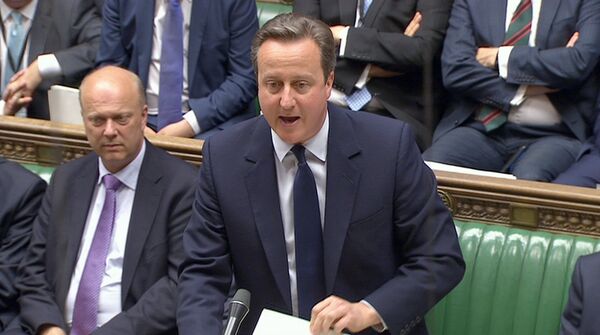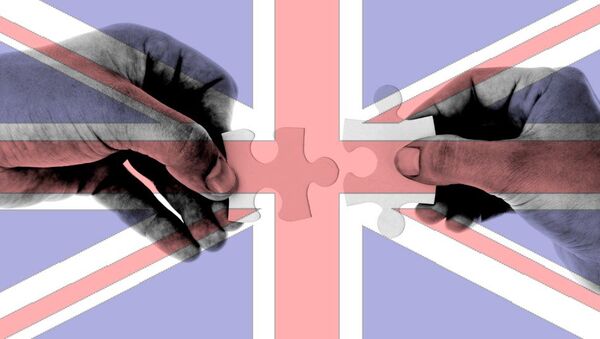However, a new report from the UK in a Changing Europe think thank, says it has become "steadily clearer that 'Brexit' could in fact mean a whole number of things.
"Take your pick between soft Brexit, hard Brexit, white Brexit, black Brexit, grey Brexit, red, white and blue Brexit, clean Brexit, dirty Brexit, stupid Brexit, smart Brexit or dog's Brexit."
The phrase refers to UK Prime Minister's mantra that "Brexit means Brexit" — a phrase she has continued to use ever since taking over from David Cameron, and yet on which she steadfastly refuses to elaborate.
Sputnik has been told that the roots of this confusion can be traced back to the referendum campaign, when both process and substance conspired against clarity.
Brexit — six months on.
— James Metcalfe (@MrJMetcalfe) 23 December 2016
Insightful report from @GoodwinM @UKandEU https://t.co/tGcEzdF0tq pic.twitter.com/8kRb9Tt5Hn
"The Leave side was divided. Some people on the Leave side were the people who called themselves 'Liberal leavers' who thought they were leaving to make Britain a more open, more international country," Professor Anand Menon, Director of UK in a Changing Europe and Professor of European Politics and Foreign Affairs at Kings College London told Sputnik.
"Some on the other end of the spectrum thought this was a way of keeping people out [of the country], making Britain more insular. The people who voted to leave were divided between the two thoughts: those who want Britain to be 'open and out' and those who want Britain to be 'closed and out'. If there was a key theme, I think it was control: control over borders, control over immigration and control over money [what the UK pays into and gets out of the EU]."
Professor Menon told Sputnik that both the Remain and Leave campaigns were dominated by immigration, but little else.
"One of the striking things about the referendum was how little it had to do with the EU. This was referendum about lots of things, but it wasn't a detailed discussion about how the EU works and what it means for us. People had a sense that, in the EU, we are not in charge of the things that we could be in charge of out of it," Professor Menon told Sputnik.
Six months since #EURef. Interesting commentaries @UKandEU #Brexit https://t.co/G7VyvWKPru pic.twitter.com/6zIdp67K7h
— Karen Watt (@KarenVWatt) 23 December 2016
Promise, Promises…
In the run-up to the referendum, Cameron had tried to wrest out of Brussels promises that Britain could take back control over immigration — stopping in-work benefits for EU migrant works and imposing some form of quota on immigration, as well as a guarantee that Britain would be exempt from the principle of 'ever closer union'.
Although Brussels allowed leeway on some of his demands, Cameron's "renegotiation" was widely derided.
"He certainly got the referendum campaign wrong in several ways. He got it wrong with the renegotiation, in the sense that he promised far more than he could deliver, so what he came back with looked slightly disappointing," Professor Menon said.
"He got it wrong with the renegotiation in the sense that — prior to it — he had said that, if this doesn't go right, I will support Leave. He came back with a paltry deal and then became the EU's most enthusiastic supporter," he added.

Menon puts the blame for the divisions and subsequent confusion firmly on Cameron's head.
"If there was a party leadership that failed to rally its members, it was the Conservatives, because a majority of Conservative supporters voted to leave, even though the leader of their party was campaigning for Remain," he told Sputnik.





